Iconic figures lead list of Basketball Qld’s most influential people in 75-year history
From the ‘father of basketball’ to iconic coaches and history making players – the most influential figures in Basketball Queensland’s 75 years have been revealed. SEE THE LIST
Southeast
Don't miss out on the headlines from Southeast. Followed categories will be added to My News.
From the ‘father of basketball’ to iconic coaches and players as well as history making athletes – Basketball Queensland has had some key figures change the face of the sport in the state in its 75 years.
Basketball Queensland celebrated its diamond jubilee in July this year, recognising 75 years of an organised state governing body overseeing the sport.
The organisation marked the occasion by launching their book The Playmakers: The History of Basketball Queensland at their Parliamentary Friends of Basketball event in September.
From humble beginnings as the Queensland Amateur Basketball Association (QABA) in 1946 through to the formation of Basketball Queensland, the sport has grown to incredible heights in the state.
Basketball Queensland now boasts more than 35 associations across the state with over 46,000 players, officials and coaches involved the game, plus countless more administrators and volunteers.
“I couldn’t be prouder when I look back at what has been achieved in the last 75 years and look forward to witnessing the future growth and potential of basketball unleashed even further,” outgoing Graham Burns.
To recognise the history, The Courier-Mail has revealed the most influential figures in Basketball Queensland’s 75-year history.
See the list below.
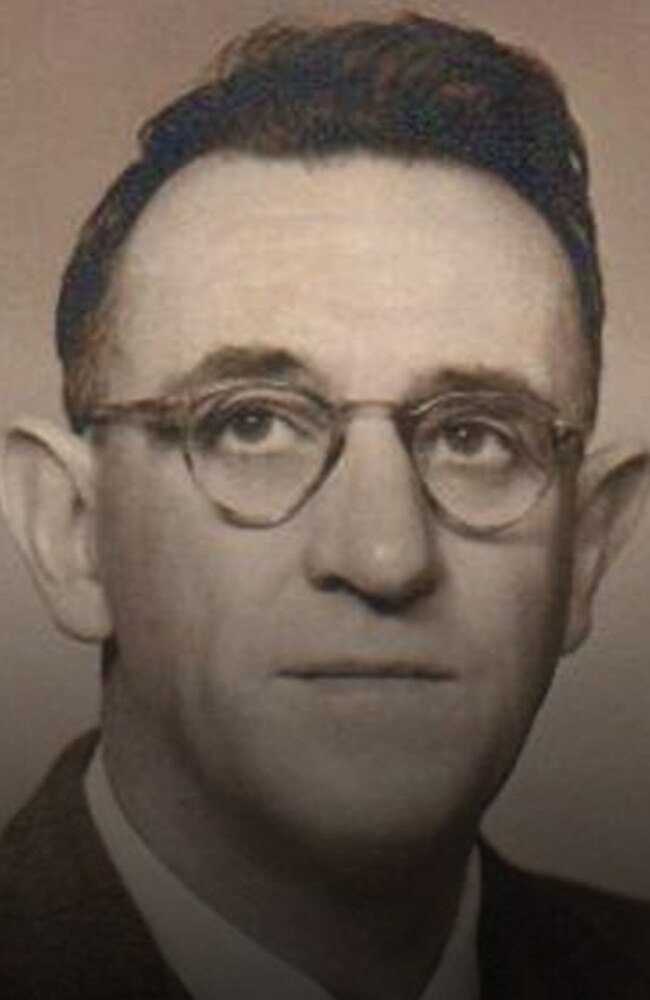
IVOR BURGE
Known as the ‘father of basketball’, Ivor Burge is responsible for bringing basketball to Australian shores.
Burge produced the first standardised basketball rule book in Australia and was influential in establishing a national body for the sport.
His involvement in basketball in Queensland then started in 1941 when he was appointed the first Director of Physical Education at the University of Queensland.
It was there Burge introduced basketball to the university and then coached basketball at the Brisbane YMCA.
Burge also founded the Queensland Amateur Basketball Association and at 44-years-old he was captain/coach of the first Queensland team to contest the first Australian men’s basketball championship.
Burge continued to coach Queensland teams at Australian championships until 1954 and became the first life member of the QABA in 1956.
But his involvement didn’t stop there, Burge was also appointed to the Technical Committee for basketball at the Melbourne Olympic Games and then became a Member of the Order of the British Empire (MBE) for his services to the University of Queensland in the field of physical education and basketball.
He was awarded life membership of the Australian Basketball Federation in 1992 and in 2004 was an inaugural inductee into the Basketball Australia Hall of Fame and of the Queensland Basketball Hall of fame.
Burge was the inaugural life member of Basketball Queensland.
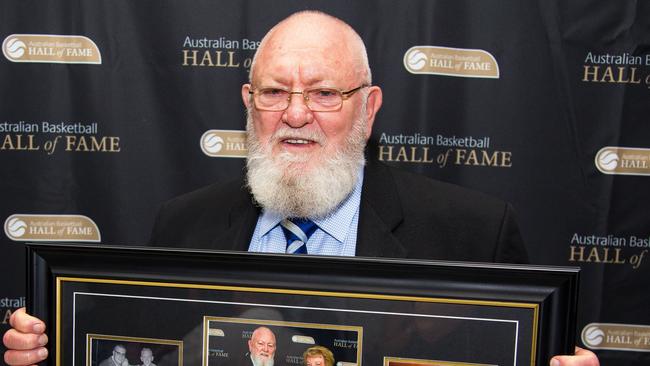
KEN MADSEN
Beginning his career as a referee, Madsen is one of the pillars of Basketball Queensland after spending more than 45 years contributing to the sport.
Madsen first represented Queensland at the National Championships in 1965 before going on to hold the positions of president of the Queensland Basketball Referees’ Association and then president of Basketball Queensland.
Through his initiative alongside Harold Peacock and Bob Rayner, Basketball Queensland built the Vince Hickey Stadium (Auchenflower Stadium) in 1973 which was originally a two-court complex before being extended to four courts in the late 1990s.
Madsen was a long-serving member of both the Basketball Queensland and Basketball Australia boards and served in administrative roles for Australian delegations as well as national teams on overseas tours.
He acted as BA’s Treasurer, Deputy Chairman and a member of the Finance and Audit Committees for many years while being heavily involved in restructures of the business over a number of decades.
Madsen was named a life member of both Basketball Australia and Basketball Queensland in the mid-1980s before taking over the position of chair of the NBL Tribunal in the 1990s, which was a role he would hold for over 20 years.
Madsen had continuous involvement with the Australian Olympic Committee between 1978 and 2000 and he represented both BA and the Queensland Olympic Council.
He then took up the position of President of the QOC and was honoured with life membership of the QOC and also received a Service to Sport award at the QSport Awards.
Madsen was also awarded the FIBA Order of Merit in 2010, has also been nominated for admission to the FIBA Hall of Fame and was the recipient of the Patricia Ramsay Award, which pays tribute to work done for the betterment of FIBA Oceania.
Madsen is a life member of Basketball Queensland and a member of the Queensland Basketball Hall of Fame.
VINCE HICKEY
Arguably the most important coach in the history of basketball in Queensland is Vince Hickey.
Born in Brisbane in 1933, Hickey was a promising rugby union player before being introduced to basketball after World War 11.
His knowledge of the game was unrivalled in Queensland, except another pioneer in Ivor Burge.
Hickey represented Queensland as a player at Australian Championships in 1957/1958, captained Queensland in 1962 and 1963, and coached the Queensland men’s team in 1964, 1965 and 1975.
He also represented Brisbane at Queensland Championships as a player, captain, coach at both senior and junior levels throughout the years.
Hickey continued to develop his basketball coaching knowledge by attending coaching clinics given by visiting American coaches and helped build a fraternity of coaching expertise to develop Queensland and Brisbane basketball for years to come.
Many of Queensland’s legendary coaches were mentored by Hickey, including Norma Connolly, Ray Alloway, Peter Pendle and Bob Young.
Hickey was also mentor for Brian Kerle, who coached St Kilda Basketball Club, and the Brisbane Bullets to NBL championships.
Brisbane Basketball Inc awarded Hickey its first Life Membership and renamed its Auchenflower facility, the Vince Hickey Basketball Stadium.
Hickey is a member of the Queensland Basketball Hall of Fame.
He died in 1989.
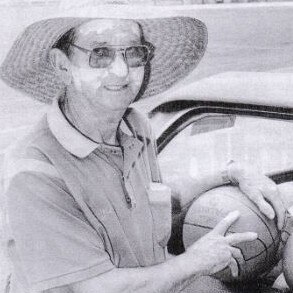
CHARLIE DOYLE
Another pillar of basketball in Queensland was Charlie Doyle but this time it’s for his contributions as a coach.
Doyle was a serving officer in the Royal Australian Air Force in Japan in 1947 when he was introduced to basketball and then joined the Cathedral Team after being posted in Townsville in 1949.
From 1949-1952, Doyle was coach of the Townsville men’s representative team and of many teams across all grades.
Doyle was appointed as assistant coach of the Queensland men’s team in 1955 and coach of the Queensland men’s team in 1958 before he was discharged from the RAAF in 1965 and settled permanently in Townsville.
Between 1966 and 1980, Doyle filled multiple roles in basketball in Townsville and North Queensland, including team coach, club coach, Townsville coach, North Queensland coach, secretary/treasurer and president of Bouncers Club, president of the Townsville Minor Junior Association, president of the Townsville Minor Junior Referees’ Association and president of North Queensland Basketball Association.
Over almost 20 years from 1966, Doyle transformed Hermit Park State School into The Basketball School, where the program grew to cater for more than 5000 participants, where he coached up to eight classes a day.
Doyle’s contributions have led to him becoming a life member of North Queensland Basketball, Townsville Basketball, and Bouncers Basketball Club.
In the Australia Day Honours’ List in 1990, Doyle was awarded the Medal of the Order of Australia for services to junior basketball.
Doyle sadly died in 2016 and he was inducted into the Queensland Basketball Hall of Fame posthumously.
BOB YOUNG
The inaugural coach of the Brisbane Bullets and one of the club’s founding fathers, Bob Young left a lasting legacy on the Queensland basketball community.
One of the state’s most influential basketball figures, Young begun his basketball journey at the Brisbane YMCA and Legacy Club in 1948 as a 14-year-old, according to Basketball Queensland.
But it was during the 1960s and 1970s where Young truly left his mark on the sport as a successful coach of several junior teams in Brisbane.
Young then made an impact on basketball in Queensland as an administrator, serving as secretary at Brisbane Basketball and Basketball Queensland.
Young was one of the main drivers for the Bullets to enter the NBL in 1970 and he also coached the team in its inaugural year.
Legends of the game in Australia such as Cal Bruton have said in the past that Young’s passion for the game was “second to none”.
Young coached Brisbane that same year, and Bruton, whose first season as a Bullet also came in 1979, vividly remembers the first time he crossed paths with his new coach.
“Bob Young was my first Australian coach and the passion that he had for the game was second to none,” Bruton said.
Despite only coaching the Bullets for one year, Young remained linked to the club until his death in 2019.
He is also a life member of Basketball Queensland and a member of the Queensland Basketball Hall of Fame.
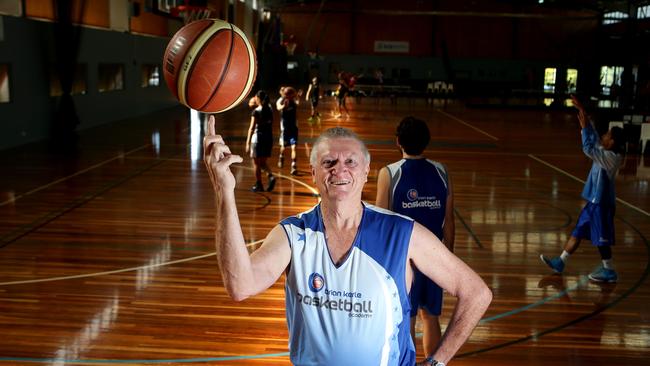
BRIAN KERLE
The man who changed basketball in Queensland, especially in Brisbane, forever.
Born in Mt Isa, Kerle was always destined to be a star of the sport in the country and it was as a player first.
The big man represented Australia at the 1972 Olympic Games and had an impressive career on the court, playing more than 100 games for his country.
But it was as a coach where Kerle has made his true mark on basketball.
Having first of all coached St Kilda in the NBL to two championships, Kerle would return to Queensland as the coach of the Brisbane Bullets from 1984 and it was at this time where he would change the face of the sport.
Kerle led the Bullets to two NBL championships in 1985 and 1987 but it was more than that - basketball became one of the most popular sports in Brisbane at that time.
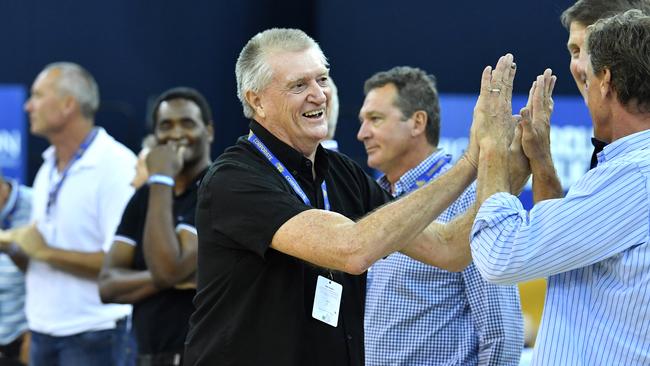
The Brisbane Entertainment Centre would regularly sell out with crowds of more than 10,000 people cheering on the likes of Leroy Loggins, Larry Sengstock and more.
Kerle finished his first stint as Bullets coach in 1992 but returned for two seasons from 1998 but since then, he has remained a contributor to basketball in the state.
The Olympian has been involved in coaching juniors for more than 20 years, which includes going to remote areas of the state, including indigenous communities and taking the game to hundreds of thousands of people in the process.
Kerle has stayed involved in the grassroots level of the sport and now has a basketball academy in Brisbane as well.
He was inducted in the Queensland Basketball Hall of Fame in 2018.
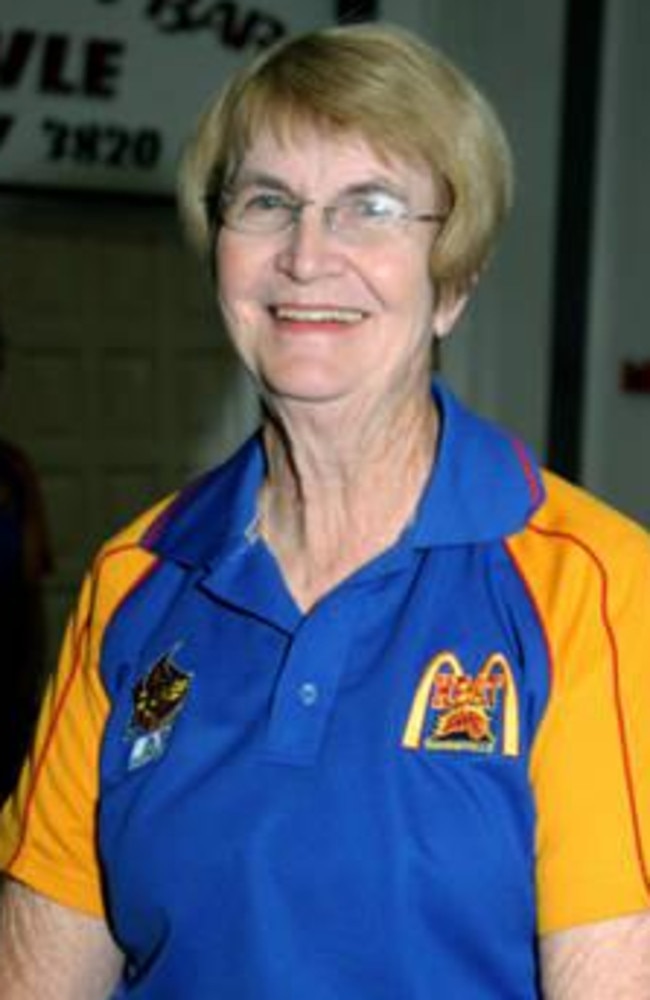
NORMA CONNOLLY
One of Australia’s most experienced coaches, Norma Connolly is another one of Queensland’s basketball mentors to join the list.
Connolly led countless teams to state and national junior age championships as a head coach. She was head coach of the Queensland under-16 and under-18 women’s teams for more than 20 years and was also the head coach of the National Junior Development Program for North Queensland in the early 1990s as well as the Head Coach at the Queensland Academy of Sport.
Connolly then moved behind the bench and served as the team manager of the Australian Gems at the 1993, 1997, and 2001 World Championships, winning one gold and one silver medal along the way.
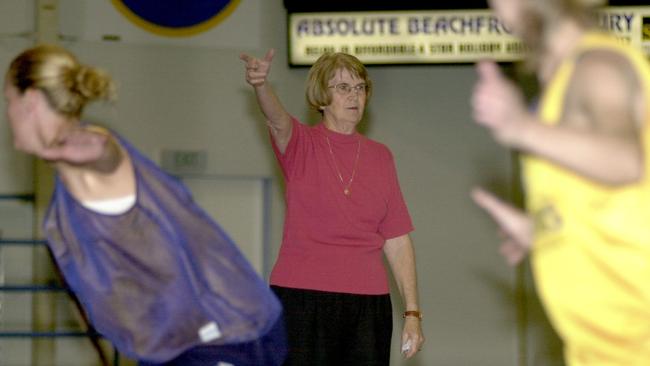
She was founding coach of the Townsville State High School basketball program and is a life member of Mackay Basketball.
The Under-16 girls National Junior Championship trophy is named in her honour.
Connolly was named the National Women’s Coach of the Year in 1998 and was awarded the Australian Sports Medal in 2000.
She also received the Basketball Australia Merit Award in 2003 and was inducted into the Basketball Australia Hall of Fame in 2007 with her lifelong dedication to basketball recognised with the Medal of the Order of Australia in 2012.
Connolly is a life member of Basketball Queensland.
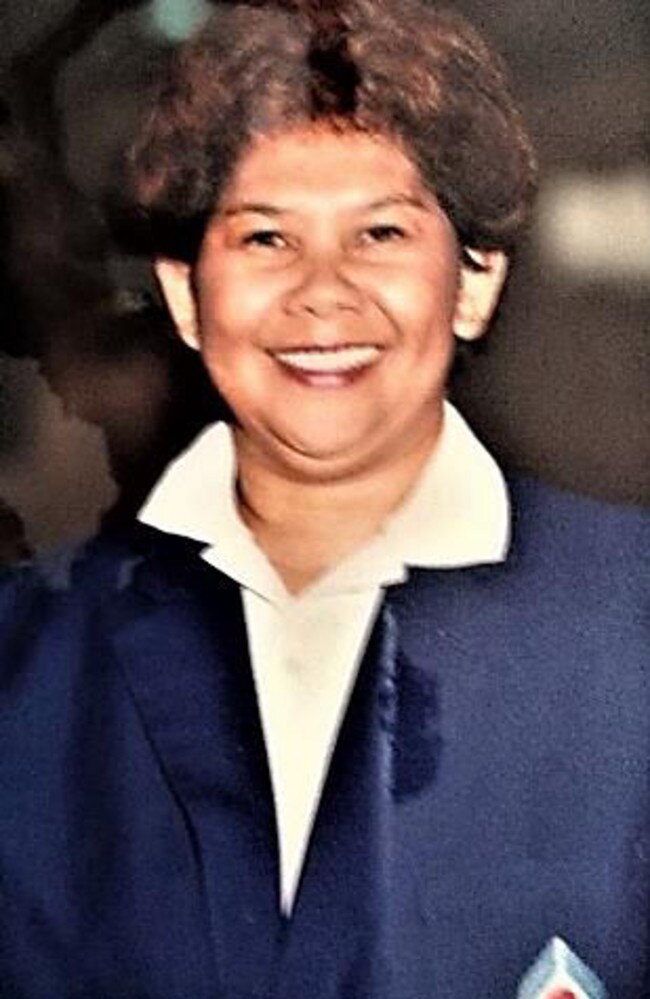
PATSY ELARDE
One of the latest inductees into the Queensland Basketball Hall of Fame was Patsy Elarde.
For more than 30 years, with the support of her husband George, Elarde has been to the forefront in developing basketball pathways for young Australians.
Through her coaching, her mentoring and her advocacy, Elarde’s contributions have enabled countless Australians, including many First Nations Australians, to achieve their dreams at every level of basketball in Australia.
The only girl in a family of five children, Elarde started playing basketball in Babinda and by the time she was 15, she was playing in the same team as her mother.
Settling in Cairns, it was there she helped form the Kiwis Basketball Club, which became the largest basketball club in the region.
Under her and her husband’s leadership, coaching and guidance – Kiwis Basketball Club became a successful basketball nursery developing many Queensland players, including Boomer and double Olympian Danny Morseu and Opal Jenny Reisener.
In 1984, Patsy coached a Queensland representative Aboriginal and Torres Strait women’s team at the ATSIC Under-19 Championships in Sydney, where the team went undefeated, and in 1985 she coached a senior indigenous women’s team, which won the Queensland All Blacks carnival in Gladstone.
Elarde’s coaching resume continued to build over the years, coaching several state representative and league teams, including the Cairns Lady Marlins and the ACT Academy of Sport basketball teams to state finals.
She was the recipient of the inaugural NAIDOC National Coach of the Year award at the NAIDOC Awards in Darwin and was appointed as head coach of the National indigenous Under-20 women’s team in 1997.’
She was inducted into the Queensland Basketball Hall of Fame earlier this year.
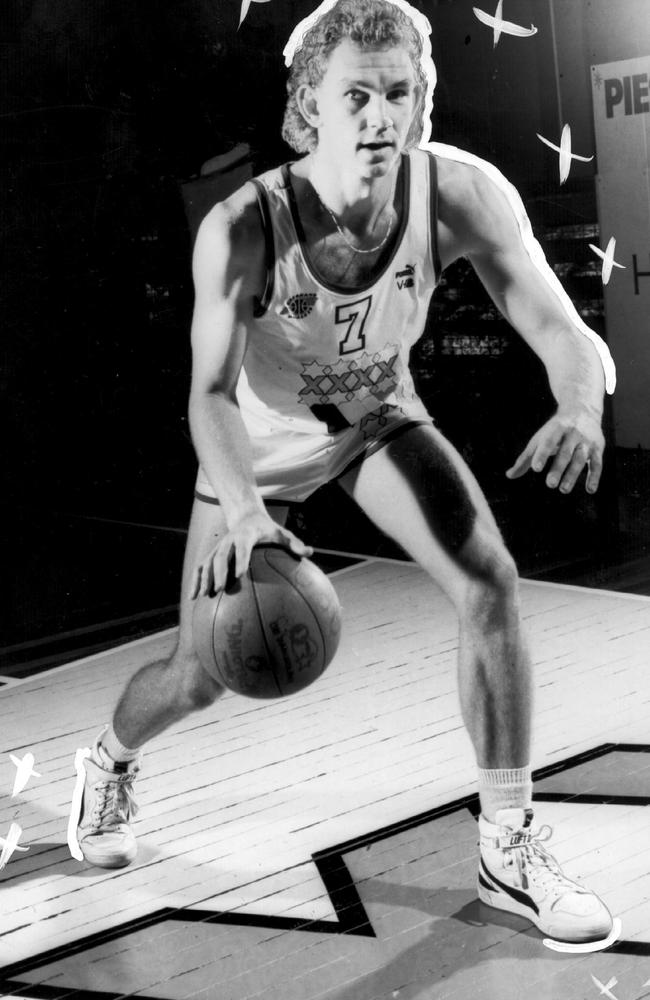
LARRY SENGSTOCK
A legendary figure in Australian basketball – it all started in Queensland for Larry Sengstock.
Born in Maryborough, his representative career started with Wide Bay at the Australian Under 14 Club Championships at Wynyard in 1972.
In 1975, he was a member of the Queensland Under-16 Team, which won Queensland’s first Australian Championship under coach Ray Alloway.
After finishing Year 12 at Aldridge High School (Maryborough), Larry moved to Melbourne to play with St Kilda and to study at University.
He made his debut for the Australian men’s team in 1977 playing against a visiting overseas team before touring USA and Europe.
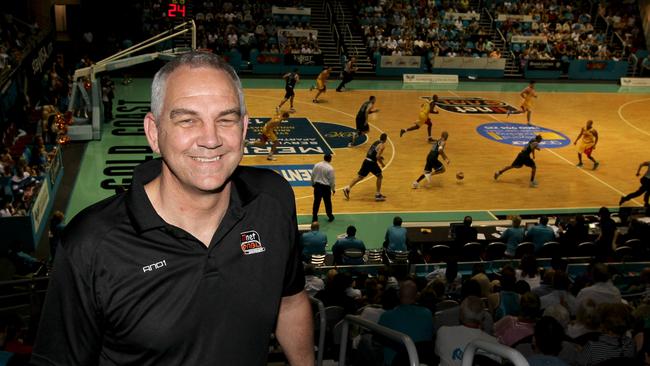
He represented Australia both as a junior and in seniors, playing in eight World Junior Championships, four World Championships and four Olympic Games.
He played 456 NBL games between 1979 and 1996 with St Kilda Saints, Brisbane Bullets, Gold Coast, and North Melbourne Giants.
He won five NBL championships and was the NBL Grand Final MVP in 1979 and the NBL MVP medal is named in his honour.
Sengstock was regarded as one of the most-feared big men on the international scene.
He was awarded the Australian Sports Medal in 2000 and inducted into the Australian Basketball Hall of Fame in 2001 before being inducted into the Queensland Basketball Hall of Fame in 2016.

SANDY BRONDELLO
Another one of Queensland and Australia’s most iconic players, Sandy Brondello is now also making major contributions to the sport as a coach.
The Mackay product started playing basketball at age nine and said she fell in love with the game from the start.
Brondello was already playing A Grade basketball in Mackay at 12-years-old and Under-14 representative ball.
Brondello’s mentors included Carol Insch and the legendary Norma Connolly.
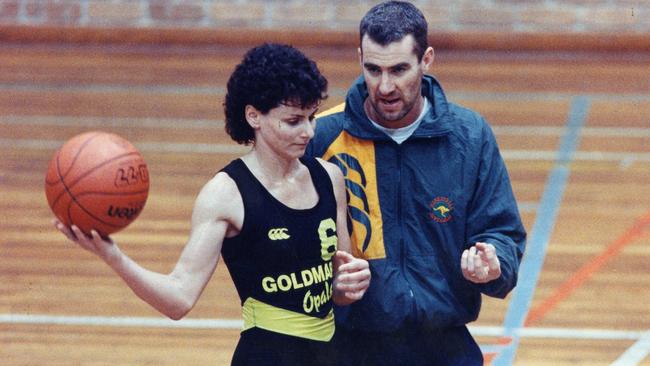
Her career included time at the Australian Institute of Sport before playing in the WNBL for 10 years, where she was the competition’s leading scorer in two seasons and the league MVP in 1995.
Brondello also played 302 games for the Opals, including four Olympic Games, where she won one bronze and two silver medals, as well as four World Championships for two bronze medals.
Brondello was among the first Australian women to pioneer playing overseas in Europe before playing in the WNBA for five seasons, earning All-Star selection in 1999.
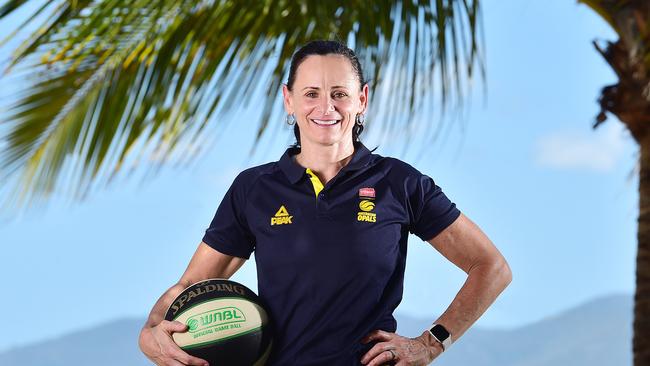
Brondello then joined the coaching ranks as an assistant coach of the San Antonio Silver Stars for four seasons before becoming the head coach in 2010.
One of Basketball Queensland’s ‘favourite daughters’ later became the coach of the Phoenix Mercury, winning a WNBA title in 2014 and is currently the coach of the Australian Opals.
Brondello was awarded the Australian Sports medal in 2000 and was inducted into the Australian Basketball Hall of Fame in 2010.
She was then inducted into the Queensland Basketball Hall of Fame in 2016.
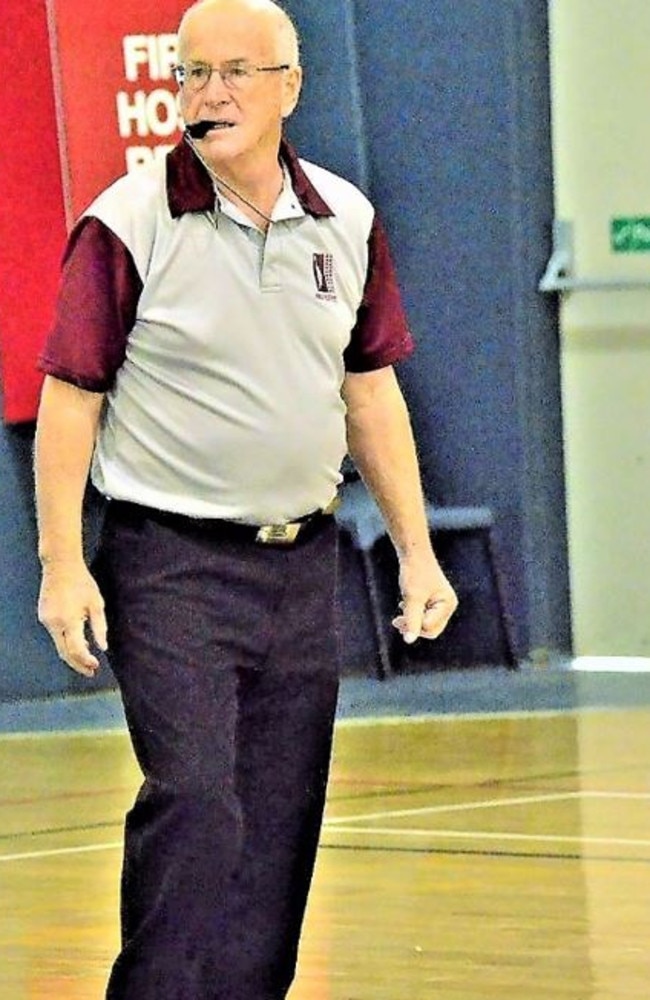
RON BLADES
For almost 50 years, Ron Blades made an impact on basketball that will last forever.
From the early 1960s until the mid-2010s, contributed to basketball in Queensland through the areas of refereeing, referee education, referee administration and basketball administration and coaching.
He started refereeing in Toowoomba in 1961 and between the early 1960s to late 1970s, Blades refereed at every Queensland senior men’s state championship and at most Queensland senior women’s state championships.
He continued refereeing at Queensland state championships until the mid-1980s.
Between 1965-1984 he refereed at Australian championships every year, he also refereed at every Australian senior men’s Australian basketball championship between 1965-77 and at many of these championships he was awarded the gold medal game.
Blades became the first Queensland official to receive the International (FIBA) Referee Badge in 1971 at the Australian championships in Mackay.
He refereed 33 NBL games from 1979-84 and also refereed the first ever international women’s game played in Queensland in 1971.
Blades continued refereeing within the Queensland state basketball league until 1992 and within the Toowoomba local association, the BQJBC and Toowoomba junior basketball competitions until 2015.
Blades’ personal refereeing performances is believed to have set the standard for Queensland referees to aspire to between the 1960s to 1980s with his leadership creating a platform for Queensland referees.
He is a life member of Basketball Queensland.
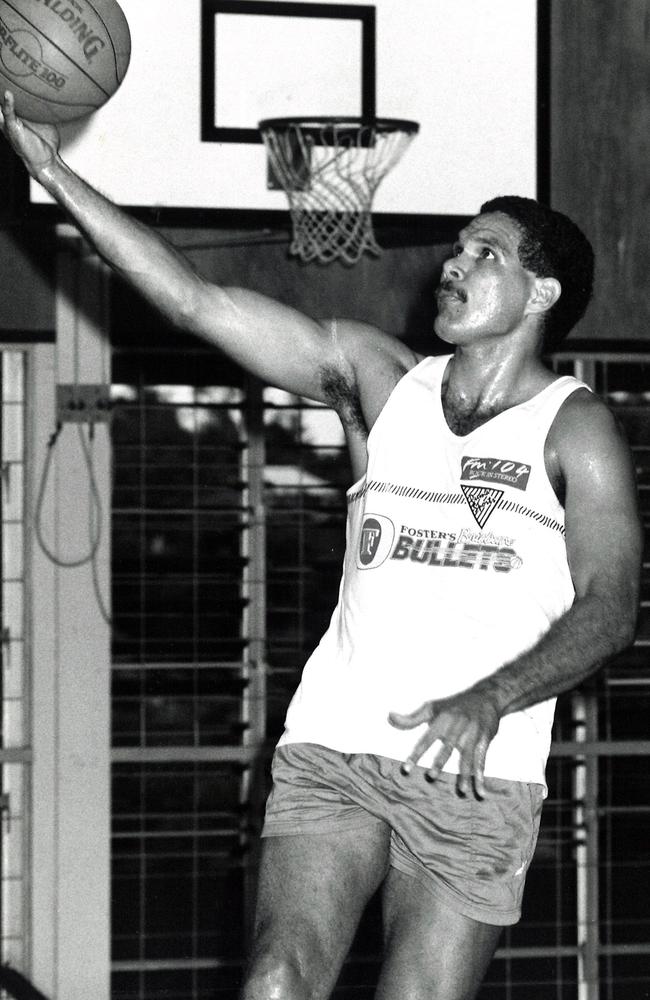
DANNY MORSEU
A pioneer of the sport not only in Queensland but all over the country for indigenous Australians, Danny Morseu is one of the most iconic figures for basketball.
A Torres Strait Islander, the Thursday Island product started playing basketball at school and, despite being cut from his primary school team, he developed into an impressive athlete.
After completing school he moved to Cairns where he played basketball and rugby league.
Danny played in the Queensland Under-20 team in 1976 and in 1977, he was discovered by St Kilda coach and another iconic figure of basketball in Australia, Brian Kerle, and he moved to Melbourne to play with St Kilda.
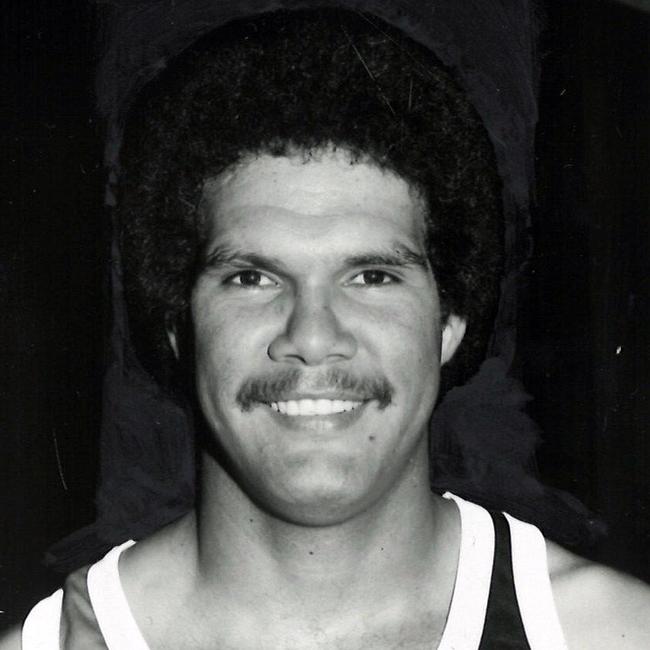
His time representing his country started in 1978 as a member of the Australian men’s team for the World Championship in the Philippines.
Morseu was a member of the St Kilda team to win the very first NBL title and went on to win again in 1980.
He played 217 NBL games in total, winning another NBL championship with the Brisbane Bullets in 1987 and was named in the NBL All Star in 1980 and 1981 and iconic coach Lindsay Gaze described Morseu as “the closest player we have in Australia to being an NBA player”.
In all, Danny represented Australia 47 times including two Olympic Games, one World Championships and the Commonwealth Games in 1983.
He was the first Torres Strait Islander born in the Torres Strait to compete in the Olympic Games.
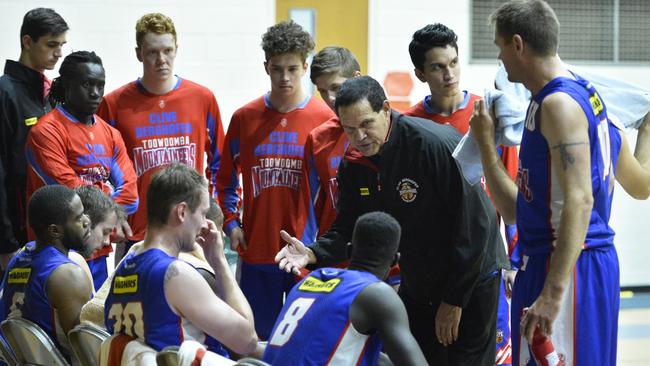
Danny retired from international competition in 1984 and from the NBL in 1989, but continued to play locally in Brisbane.
He was awarded the Australian Sports Medal in 2000 and inducted into the Australian Basketball Hall of Fame in 2001.
Morseu went on to run a number of State and Federal programs involved with Aboriginal and Torres Strait Islander sport.
He is also an uncle of Patty Mills and has mentored both him and Nathan Jawai.
He was inducted into the Queensland Basketball Hall of Fame in 2016
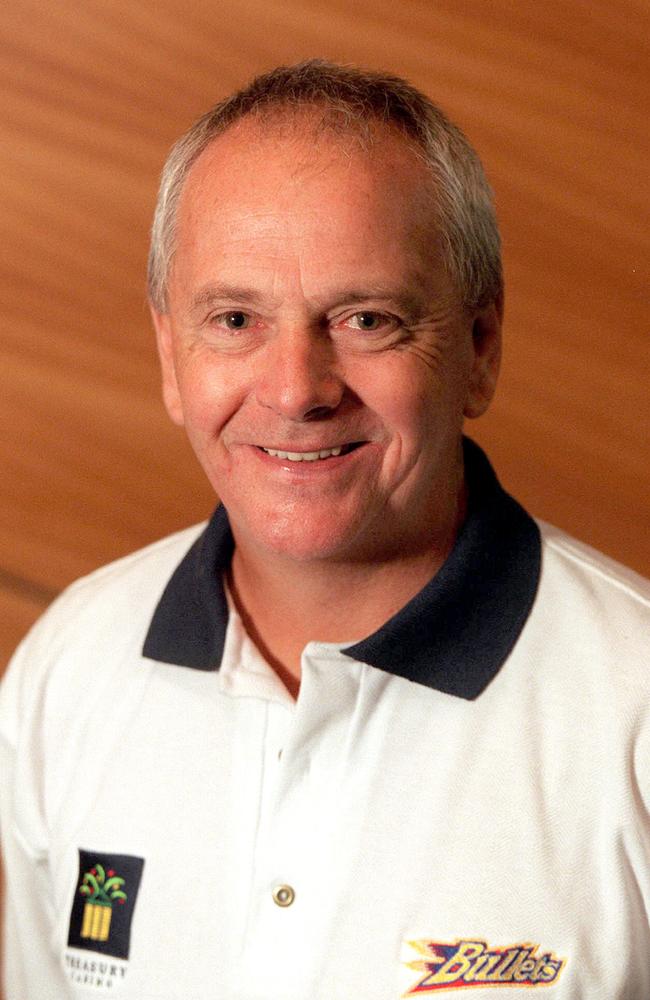
DAVID CLAXTON
One of the most well-known coaches in the history of basketball in the state due to his more than 40 years contributing to the sport is David Claxton.
Claxton came to Queensland from Tasmania in 1973 and joined the North West Districts club and had coaching success at a Brisbane championship level and at the Australian Club titles.
He captained Queensland in 1974 and 1975, then coached the Queensland men’s team in 1976 and 1977 and took Queensland to its best national ranking – third in 1977.
Claxton then took the Gold Coast side to the national club titles in 1979 and along the way won the inaugural Queensland Club Championships and the AAABL crown.
Claxton was one of the instrumental figures in the establishment of the Queensland State League competition, to help create a pathway from juniors to the NBL.
His coaching within the state league and Queensland senior leagues included coaching the Brisbane Brewers to third place in 1986, head coach of the Gold Coast Goannas in the State League from 2001-04
Claxton’s National Basketball League coaching career stretched almost 20 years with the Brisbane Bullets, Gold Coast Rollers, Adelaide 36ers and Wollongong Hawks.
Claxton was also instrumental in the push for the Gold Coast Blaze to enter the NBL.
He was also an assistant coach of the Boomers at the 1994 world championships.
For more than 15 years, Claxton worked as basketball director and head coach of The Southport School.
He was inducted into the Queensland Basketball Hall of Fame in 2016.
**There are dozens more influential figures who made a huge mark on basketball in Queensland over the 75-year history and deserve recognition however we limited to just 13 of the top figures**





